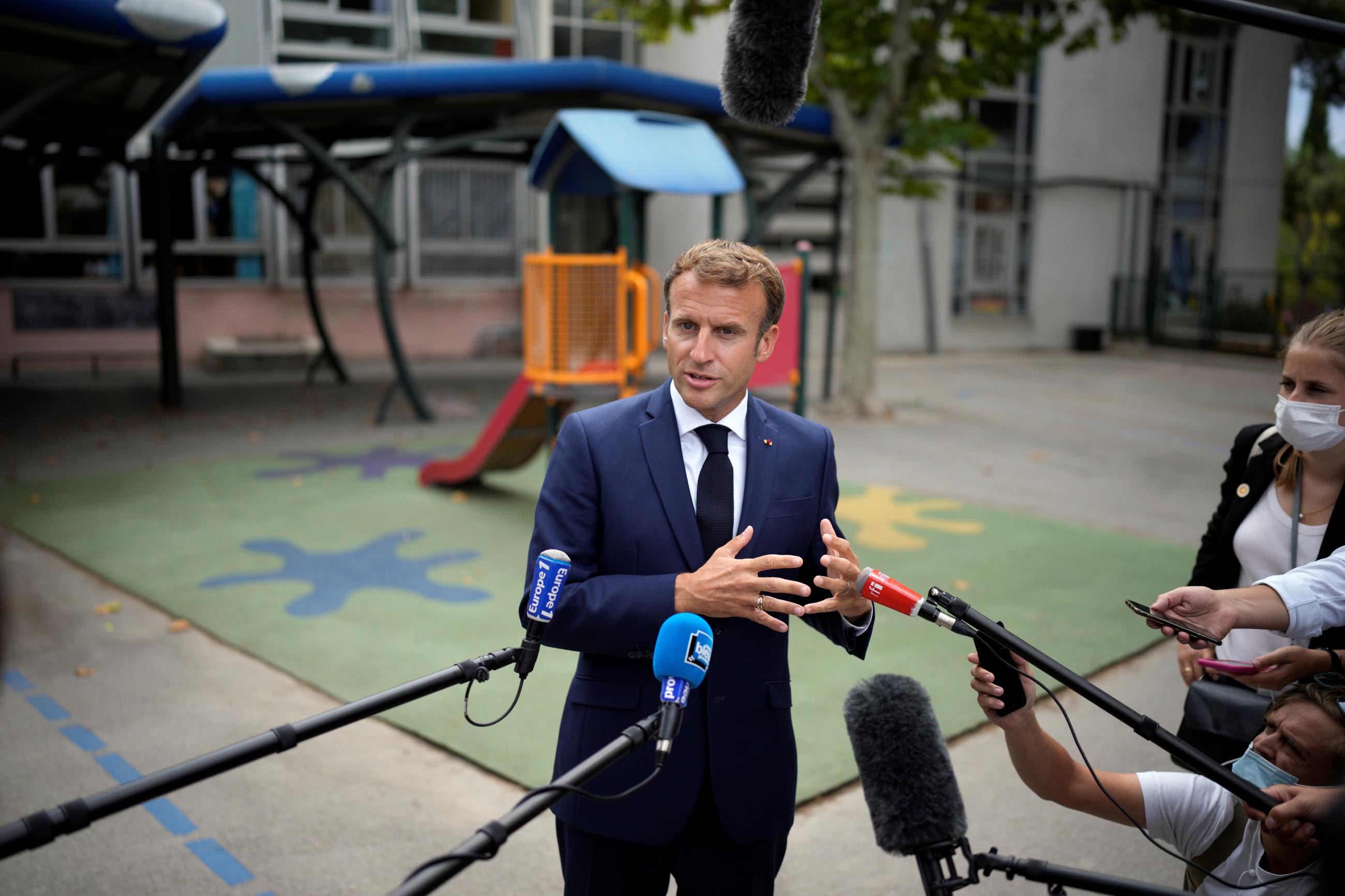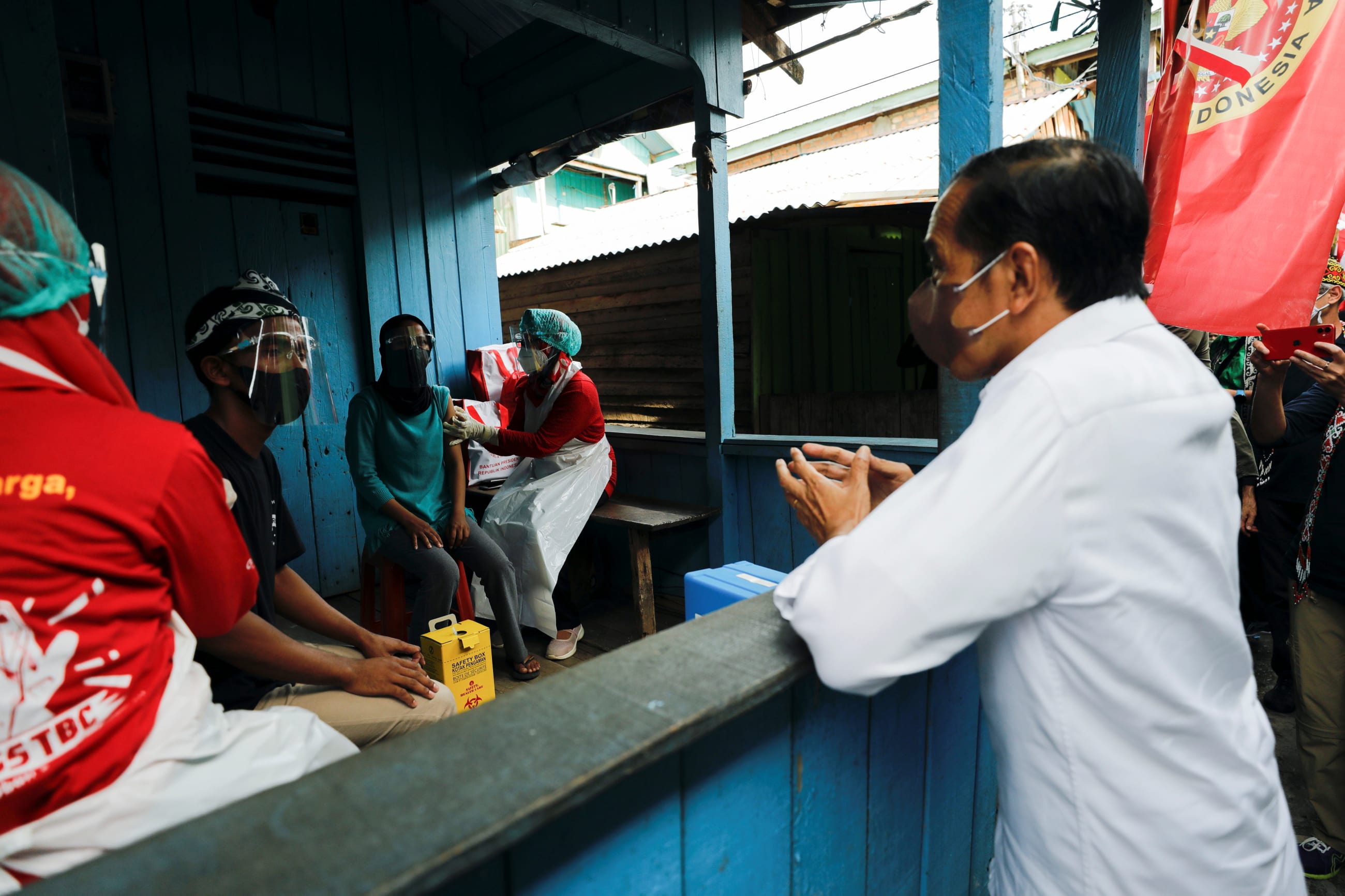Nearly two years into the COVID-19 crisis, it is clear that science alone is not going to save us. Despite the availability of multiple highly effective vaccines being produced at record volumes, the total number of deaths from COVID-19 in 2021 is already two-thirds greater than the number of COVID-related deaths around the globe in all of 2020. The quandary: many have occurred in countries with an ample supply of COVID-19 vaccines.
So, what's holding things up if we know how to end the spread of this tricky virus and reduce the risk of future pandemics? Everyday actions of individuals—from wearing masks to social distancing to becoming vaccinated—will protect people and their communities from becoming infected. Yet, that's not happening everywhere. As previous public health emergencies have shown, the decision to choose COVID-quashing actions depends in large part on trust.
While political polarization and distrust have manifested clearly in some places, including the United States, the question of who people trust in this pandemic varies country to country, city to city, and even neighborhood to neighborhood. To learn more, researchers asked people about their behaviors and perspectives on public health interventions. The global survey, conducted on Facebook between mid-2020 and March 2021, reached about 570,000 people in 67 countries (see map below). The researchers surveyed people about the degree to which they trusted specific institutions and people—including politicians, local and government health workers or authorities, journalists, scientists, and people they knew personally—as sources of COVID-19 information.
The total number of deaths from COVID in 2021 is already two-thirds greater than the number of COVID-related deaths around the globe in all of 2020
Surveys come with caveats, though. Behaviors and trust likely vary over time—something that the global survey did not capture. In addition, Facebook users who responded to the survey may be different than people who either don't have Facebook or choose not to take the survey. For example, they may be more trusting than non-survey takers. Nevertheless, the findings could help leaders and institutions tailor risk communication messages about COVID to their communities.
Who Do People Trust?
Worldwide, scientists are among those experts people reported trusting the most when it comes to COVID-19 news and information, with trust in this group never dipping below 60 percent and distrust never exceeding 10 percent among survey takers in any WHO region. There was not much variation seen between regions, although it is worth noting that respondents in Europe reported the lowest levels of trust in scientists.
In every region, respondents indicated greater trust in pandemic news and guidance from their local health workers than from national government health workers. The divide is particularly wide in the Americas, where six out of ten respondents reported trusting local health workers whereas fewer than three out of ten said the same about national government health workers.
Population Trust in Sources of Information by WHO Region
In most regions, a greater percentage of people said that they trust the World Health Organization (WHO) more on issues related to COVID-19 than they trust local or government health authorities. The differences between regions are significant, however. Nearly three out of four Africans trust WHO while only half of Europeans report the same.
Trust in personal contacts is lower than trust in scientists and health officials—but it varies across regions. A third of respondents in Africa and a quarter in Southeast Asia trust those they know personally, but only 10 percent of respondents in the European region trust personal contacts.
Trust in journalists is relatively high (38 percent) in the African region and low (8 percent) in the European Region. In contrast, distrust in politicians is widespread and universal. For example, more than 60 percent of people in the Eastern Mediterranean region and the region of the Americas distrust news from politicians. Trust in politicians as news sources was highest in the Western Pacific region, but still only hovered at 16 percent.
Trust in sources of COVID-19 information and news also varied widely within regions. For example, in several countries in Southeast Asia, including Vietnam, respondents reported high levels of trust in COVID-19 information that came from government health authorities. Large interregional differences in trust in government can be seen in other regions also.
Trust in Government Health Authorities
Percent of survey respondents that report trusting government health authorities as sources of news about COVID-19
How Much Does Trust Matter?
The survey findings suggest that people who trust scientists and local health workers as sources of COVID-19 information are more likely to perform specific public health behaviors or to hold perceptions that are beneficial to public health. For example, people who trust scientists are about 6.2 times more likely to accept the COVID-19 vaccine, 2.1 times more likely to have received the influenza vaccine last year, and 6.8 times more likely to believe that community action is important to slow the spread of COVID-19 compared with people who distrust scientists. Likewise, trusting local health workers makes people much more likely to always wear a mask (3.3 times), always wash their hands (4.4 times), and stay home when sick (2.9 times) compared to people who don't trust local health workers.
In general, expressing trust in government health authorities and the WHO also makes people more likely to protect themselves and their communities from COVID-19. Trusting politicians is not strongly associated with any factors except for acceptance of the COVID-19 vaccine. This could be due to the politicization of the vaccine and wide-ranging vaccine hesitancy that has manifested in many countries globally.
Likelihood of Performing Socially Beneficial Behaviors
Comparison of people who trust in sources compared to those who do not
Opportunities to Build Trust
As the most trusted group of experts on COVID-19 information—globally and regionally- local health workers and scientists have an important role to play in convincing the public that vaccinations, mask use, and social distancing are our best shot for getting life back to normal. Building trust can be spurred by a crisis, but the opposite is also true. Reasons for lost trust include the perception of political interference, messaging that changes or is incomplete, and natural frustration the on-again, off-again mandates that affect all aspects of society. Scientists and health officials at all levels should be transparent about the limitations of scientific evidence and processes. They should also be empathetic when it comes to peoples' concerns about vaccines, the negative health and economic effects of social distancing, the impact of business closures on communities, and other wariness expressed by communities. People who learn science in school are more likely to trust scientists, emphasizing the key role of education and familiarity with the philosophy of science.
Peoples' mistrust in institutions underscores how crucial it is for public health experts in communities to partner with clinicians, local politicians, influencers, community leaders, and others to improve trust and build coalitions among the general population. Coalitions that are empathetic and responsive to their members' concerns are more likely to change opinions and behaviors than messaging that questions decision making. Being honest, consistent, and transparent can also help build trust in experts.
We live in a highly connected world. While it might be impossible to trust everyone and everything, who we trust for public health information and how we use that information to change our everyday behavior matters for overcoming the COVID-19 pandemic, preparing for future public health emergencies, and mitigating the global challenges of climate change.

ACKNOWLEDGMENTS: The authors would like to thank Katherine Leach-Kemon for her insights and first-draft edits and support on the article as well as Joe Dieleman, Elizabeth Serieux, and Erin Frame for their feedback and Erin Frame for her fact-checking.
EDITOR'S NOTE: The author is employed by the University of Washington's Institute for Health Metrics and Evaluation (IHME). IHME collaborates with the Council on Foreign Relations on Think Global Health. All statements and views expressed in this article are solely those of the individual author and are not necessarily shared by their institution.












